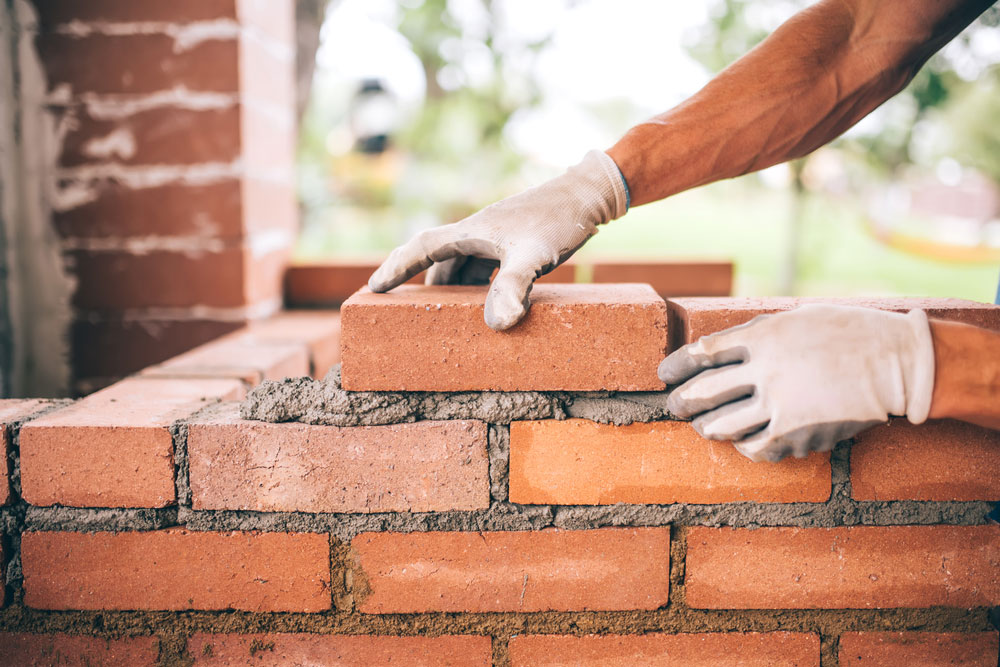What Are the Differences Between Brick, Stone, and Concrete Masonry?

When enhancing the beauty, durability, and value of a home or commercial property, masonry is one of the most important foundational choices you can make. Whether you’re designing a stunning entryway, constructing a luxury retaining wall, or updating your exterior facade, the material you select—brick, stone, or concrete—plays a significant role in the final result.
At STP Masonry, we help San Diego property owners make the right material decisions for long-term value and timeless appeal. Each material has its own unique benefits and ideal applications. In this blog, we’ll break down the differences between brick, stone, and concrete masonry to help you make a more informed decision for your next luxury project.
Brick Masonry: Classic Charm and Consistency
Brick is one of the oldest and most widely used building materials in the world. Made from natural clay that is kiln-fired to achieve strength and durability, brick masonry offers a uniform appearance that fits well with both traditional and contemporary designs.
Key Benefits of Brick:
- Timeless Look: Brick offers a refined, elegant appearance that never goes out of style.
- Durability: Resistant to fire, pests, and weathering, brick stands the test of time.
- Low Maintenance: Brick requires minimal upkeep and rarely needs to be repainted or sealed.
- Thermal Mass: Brick retains heat well, making it energy-efficient for both hot and cool climates.
Ideal Uses:
Brick is often used in luxury homes for facades, garden walls, fireplaces, walkways, and decorative pillars. It works well in San Diego’s varied architecture—from Spanish-style homes to more modern urban designs.
Stone Masonry: Natural Beauty with Unique Character
Stone is the epitome of organic elegance. Whether it’s granite, limestone, sandstone, or fieldstone, natural stone adds texture, color variation, and a sense of permanence that’s difficult to replicate.
Key Benefits of Stone:
- Visual Impact: No two stones are exactly alike, making every installation one-of-a-kind.
- Strength: Stone has exceptional compressive strength, making it suitable for retaining walls and heavy-duty applications.
- Longevity: Properly installed stonework can last for centuries with little degradation.
- Luxury Appeal: High-end clients are often drawn to the raw beauty and sophistication of natural stone.
Ideal Uses:
Stone masonry is perfect for exterior facades, retaining walls, outdoor kitchens, entryways, water features, and luxury landscaping. Its unique texture and natural color palette complement upscale homes, especially in areas like Rancho Santa Fe or La Jolla.
Concrete Masonry: Versatile and Modern
Concrete masonry includes both poured concrete and concrete masonry units (CMUs), often referred to as concrete blocks. It is a popular choice due to its flexibility in both function and design, especially when enhanced with decorative finishes.
Key Benefits of Concrete:
- Customizable: Concrete can be molded into various shapes and finished with textures, stamps, or stains to mimic other materials.
- Cost-Effective: Compared to natural stone or handmade brick, concrete is often more affordable, especially for larger-scale projects.
- High Strength: Especially when reinforced, concrete is structurally robust and ideal for load-bearing applications.
- Modern Aesthetic: Clean lines and sleek finishes give concrete a distinctly modern appeal when designed intentionally.
Ideal Uses:
Concrete masonry is ideal for retaining walls, structural walls, patios, driveways, and modern landscaping features. It’s particularly effective for custom luxury projects where a specific aesthetic or functional need must be met.
How to Choose the Right Masonry for Your Property
Choosing between brick, stone, or concrete isn’t just a matter of preference—it should reflect your property’s style, function, and long-term goals. Here are a few questions to consider:
- What aesthetic are you going for? Traditional homes often lean toward brick, modern homes toward concrete, and estate properties toward stone.
- What is your budget? Stone typically has the highest upfront cost, followed by brick and then concrete.
- What level of maintenance are you comfortable with? All three materials are durable, but stone may require specialized care, and concrete may need periodic sealing.
- Is sustainability important? Brick and stone are natural materials, while concrete offers lower waste through custom pours and reuse potential.
The best material often lies in the details—and that’s where working with an expert team like STP Masonry makes the difference.
How We Can Help
At STP Masonry, we bring craftsmanship, design expertise, and decades of experience to every project. Whether you’re considering brick for a stately entryway, natural stone for a luxurious garden wall, or concrete for a sleek modern patio, we help you select the right material and style for your San Diego property.
Our commitment to luxury and detail ensures your masonry project doesn’t just meet expectations—it elevates your property’s value and visual impact. Contact us today to schedule a personalized consultation and see how STP Masonry can turn your vision into enduring beauty.


